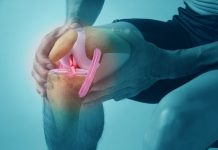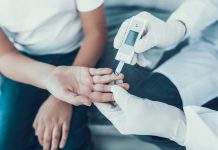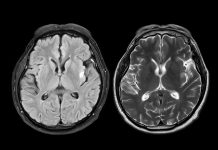Despite affecting a significant portion of the population, the impact of rheumatic and musculoskeletal diseases (RMDs) is often underestimated, with many people living with RMDs, and their families, in need of greater care and support. Lynne Woolley at Versus Arthritis spoke to Lorna Rothery about the physical and psychological challenges of RMDs and what can be done
About a third of the UK population, which is over 20 million people, have musculoskeletal (MSK) conditions. 10 million people in the UK have arthritis. Specifically, an estimated 5.4 million people have knee osteoarthritis, and about 3.2 million people have hip osteoarthritis. Furthermore, approximately 450,000 adults have been diagnosed with rheumatoid arthritis, and an estimated 190,000 adults have psoriatic arthritis. Around 10,000 children under the age of 16 have juvenile idiopathic arthritis (JIA). As a result, it affects a significant portion of the population.
Challenges associated with diagnosis and care
We are aware that there are some issues with data, so the figures we have are the best available. We don’t have clear data on JIA. These are estimates based on best data available. Contrary to the name, juvenile arthritis can persist throughout a person’s life if diagnosed in childhood. Arthritis doesn’t only affect older people, as we support children as young as 18 months old, as well as individuals of all ages through our helpline, youth and families support work and self-management courses. However, we have very little data for the 16-plus age group, making it difficult to know how many young people in their late teens and into adulthood are living with juvenile idiopathic arthritis.
Receiving an early diagnosis is crucial, as a delay can lead to long-term damage to joints and impact mental health. Reducing the time to wait for a diagnosis and ensuring that people receive the right support and care for their specific condition is a key challenge. There is a need for more early intervention and support in mental health, as well as addressing the waiting lists for joint replacements.
Conditions such as MSK and arthritis require more support for research funding to find better treatments and cure. The goal is to create a future free from arthritis by investing in research to help the millions of people living with MSK conditions. Tailored treatments and support are essential for managing these conditions, and our charity focuses on self-management, advice, peer support and living well. We aim to help individuals thrive in various aspects of their lives while living with arthritis.
The isolation of living with a long-term health condition is often not recognised, particularly the impact it can have on young individuals. There is a lot of stigma around the idea that conditions like arthritis only affect older people. Many young people with arthritis face scepticism and are often told that it’s just a bit of joint pain. Versus Arthritis focuses on reducing this isolation by providing support services that bring people living with arthritis together. We offer access to events, self-support tools and promote physical activity to help individuals manage their condition. We also provide support for those waiting for care and treatment, helping them have productive conversations with healthcare professionals. Many young people contact our services seeking advice on how to communicate with their GP or consultant about their needs, whether it’s related to education, employment, or treatment options. It’s crucial for us to support them throughout these processes.
Juvenile-onset rheumatic and musculoskeletal diseases and their impact on younger individuals
Many of the families we work with have undergone a long journey before receiving a diagnosis for juvenile arthritis. They may have undergone several tests and treatments and consulted different doctors and teams over many years before the diagnosis. Early treatment is crucial to prevent joint damage and ensure that young people and their families receive the necessary support. Currently, there is limited data in this area. Still, there is an ongoing inquiry by the National Confidential Enquiry into Patient Outcome and Death (NCEPOD), which specifically focuses on early diagnosis, treatment, and care. The results of this inquiry are expected to be reported in 2025 and will hopefully provide a stronger evidence base to understand the impact on
affected individuals.
One of the major challenges young people with arthritis face is dealing with joint pain, swelling, and stiffness, which can lead to a loss of mobility and dexterity. Additionally, 11–38% of children with JIA have JIA-associated uveitis, an eye condition which can cause eye pain and if untreated can lead to blindness. It’s crucial to not only address the initial joint issues but provide holistic psychosocial support as needed.
The way society perceives young people with arthritis is a significant concern, impacting their interactions with schools, employers, and their families. Families also face difficulties in supporting their children through tough medications, treatments, and lifestyle changes. Transitioning from childhood to adulthood is a major life change, and it’s important to provide developmentally appropriate services and support.
Some young people have to go in and out of the hospital very regularly. They might be on all sorts of medications, which can have side effects. Having a supportive school environment that considers all that and provides wraparound care for them is really important. Physical education (PE) is a significant area that came up in our survey work. Young people with arthritis must keep mobile and keep moving within their limits, taking into account their pain levels and fatigue levels at that particular moment in time. Therefore, it’s important that activities like PE are inclusive, and the programs should allow young people to keep moving without feeling excluded because they can’t do a specific sport. Instead, there should be an inclusive offer designed to meet their needs.
Many young people feel isolated and lonely when they transition from paediatric to adult healthcare services. Their condition’s unpredictability poses challenges in planning for their education, work, social life, and future. It’s essential to help young people adapt to this unpredictability and support them in living the life they want despite their condition. And importantly, ensuring that society, employers and education providers have greater awareness and create inclusive spaces to live, work, learn and play.
Questions about university, travel, relationships, understanding from friends and family, and career prospects are common. This period of life is already a time of significant change, with many opportunities arising. However, many young people also express a desire to discover new opportunities and see where they might go next. With the right treatment and care, young people can lead fulfilling lives and achieve their goals.
Policy priorities for arthritis care
At Versus Arthritis, our current priorities that we’ve been working on with the government are focused on improving work-related support. We believe it is really important for people in early careers to stay in work, thrive, and be included, especially after a period of being outside the workplace. Strengthening the care and support available for children and young people in school, particularly with their mental health and wellbeing, is also a priority. We aim to provide early intervention and support to ensure holistic care for young people of all ages and through transitional periods, from child to adult services. Improving data and awareness, investing in research, and enhancing the care and treatment for people with arthritis, including those waiting for joint replacements, are also key areas of focus. We want to make sure arthritis is a priority for the government.
Early diagnosis is crucial to providing timely care and preventing conditions from getting worse. Arthritis affects many people, yet there is a low level of awareness about its impact. There are lots of myths around arthritis. It’s important to understand that it’s not ‘just wear and tear’ or part of ageing and that some types of arthritis are autoimmune conditions, which can require significant medications and care. There is also a stigma attached to children and young people living with arthritis, and we aim to change society’s perceptions and provide better support for individuals with long-term health conditions. Additionally, investing in research will help us understand how to improve targeted treatments, care and support for people living with arthritis.








